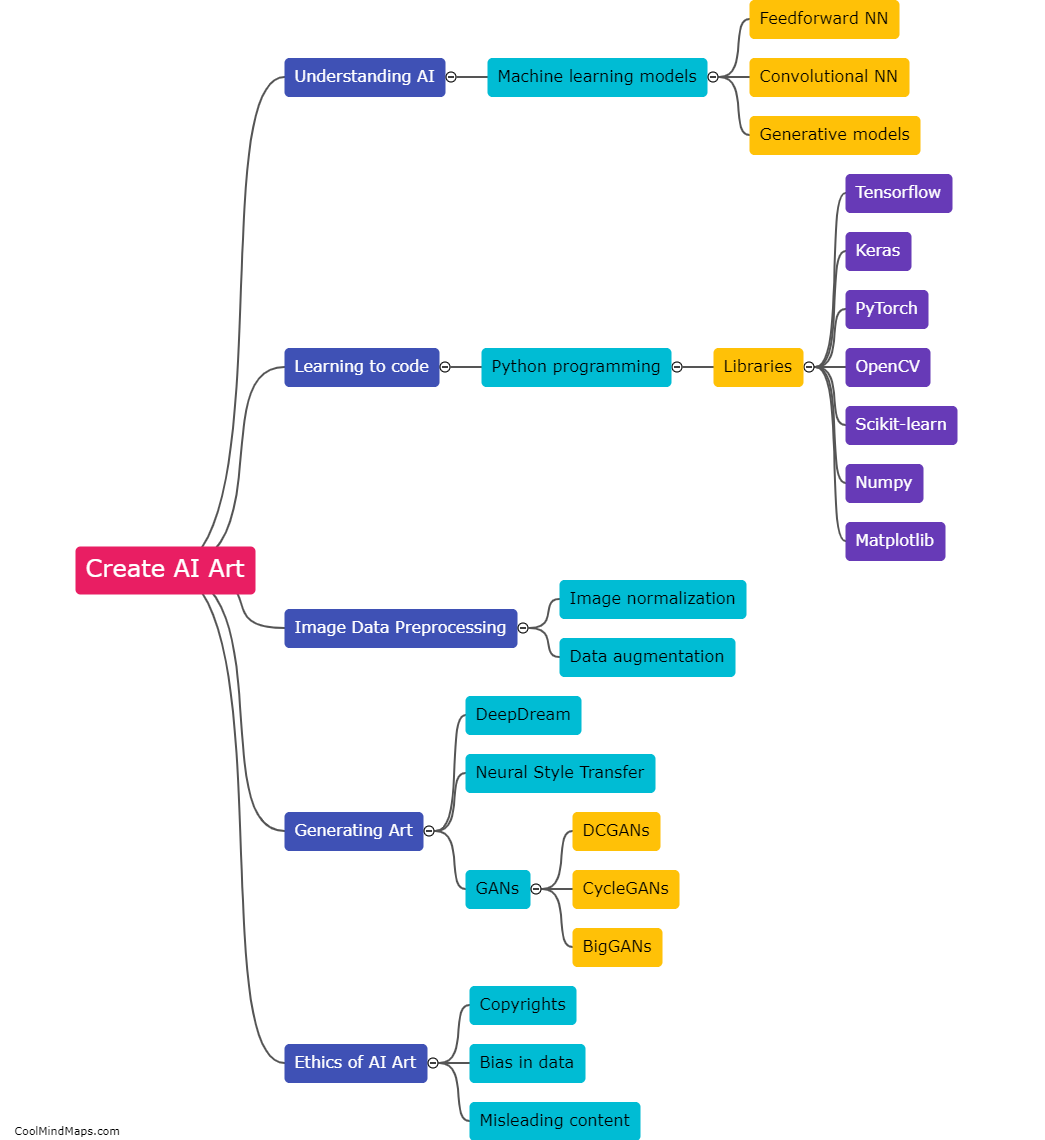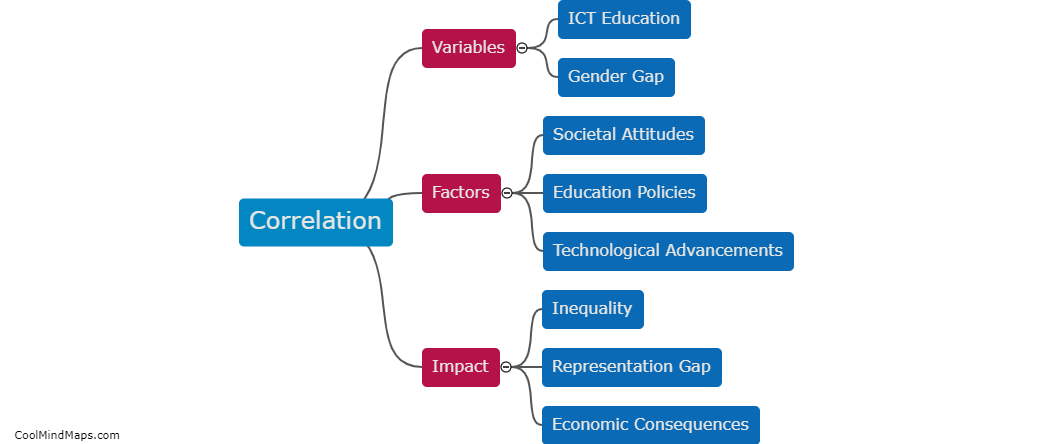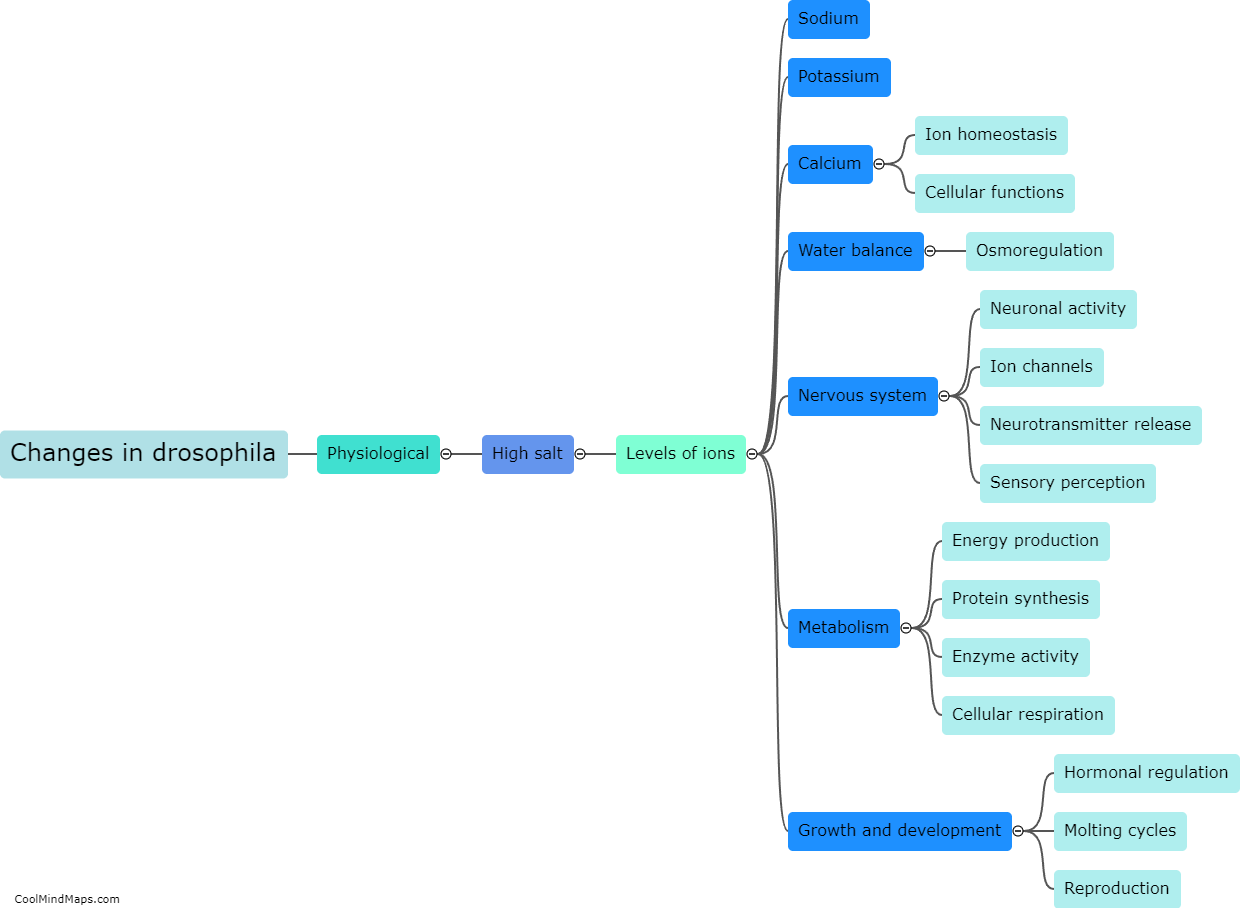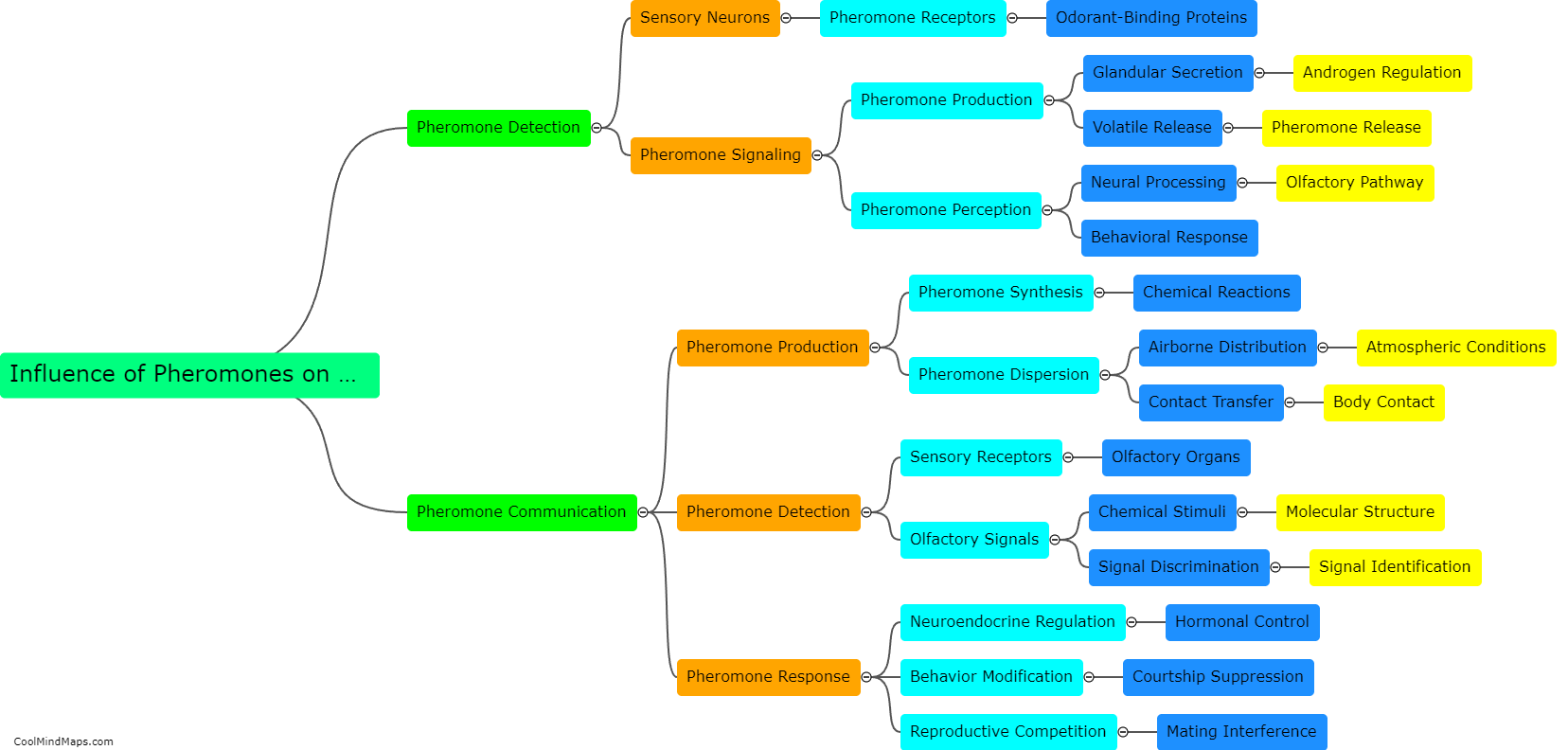Are there any genetic factors that influence drosophila's response to high salt?
Drosophila, commonly known as fruit flies, have been extensively studied for their genetic framework that closely resembles that of humans. When it comes to the response to high salt, research has suggested that there are indeed genetic factors involved. Several studies have focused on exploring the genetic basis of salt response in Drosophila, and they have implicated multiple genes and pathways such as ion transporters, neuroendocrine factors, and stress response genes. These genetic factors are believed to influence the physiological and behavioral response of Drosophila to saline environments. The identification of these genetic factors not only enhances our understanding of how organisms respond to high salt, but also sheds light on potential connections to human health, considering similar genetic mechanisms potentially exist.
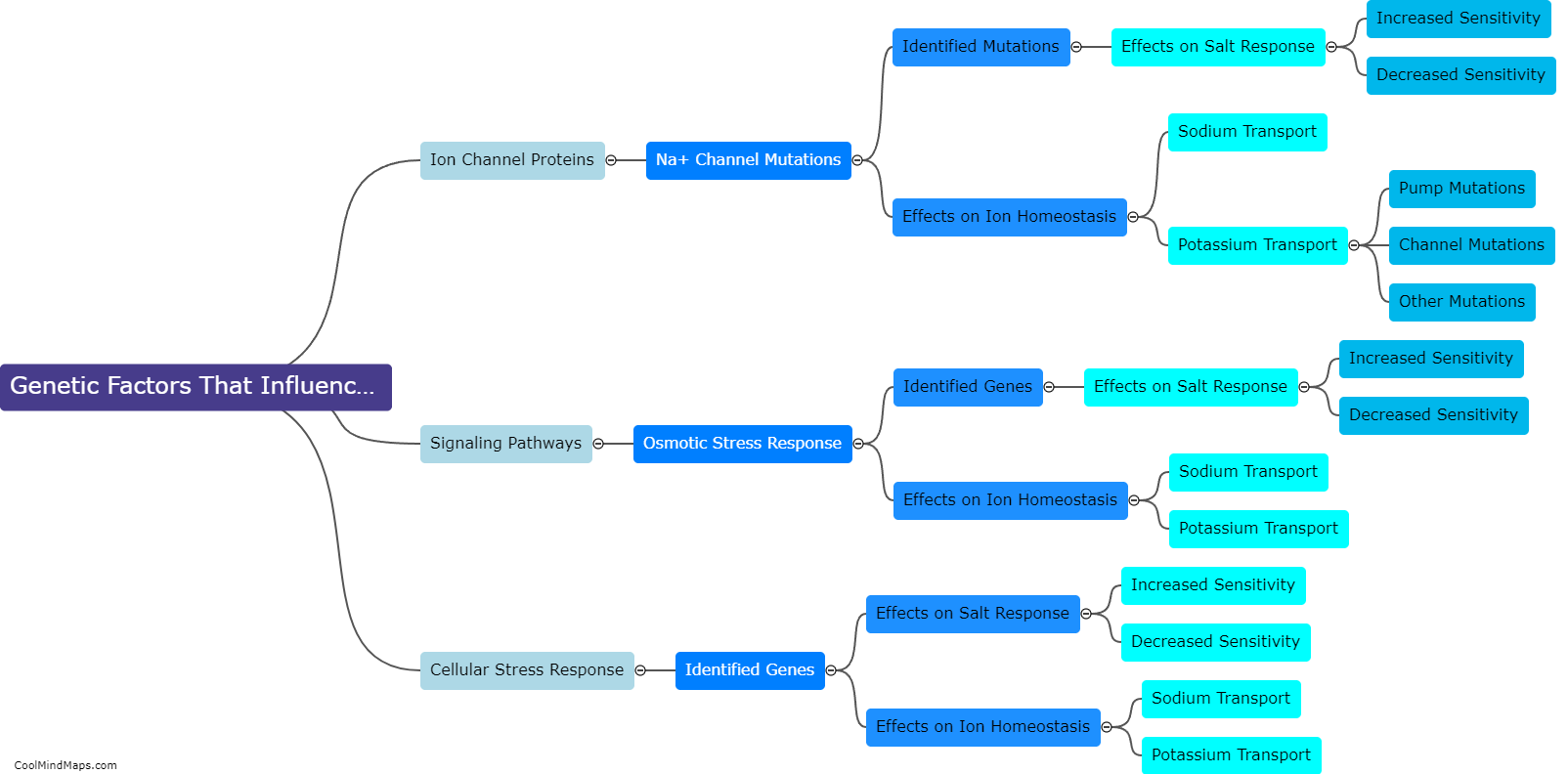
This mind map was published on 19 September 2023 and has been viewed 89 times.

